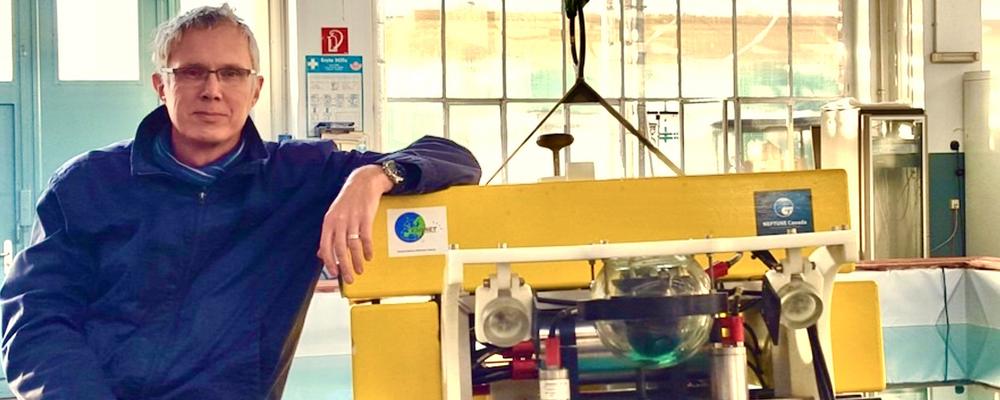
Laurenz Thomsen studies how human activities affect the sediments
Laurenz Thomsen is interested in the impact of global warming on the seabed. With an interdisciplinary approach and remote-controlled robots, he tackles the challenges of our time. When not at work, he looks forward to learn more about renewable energy and energy recovery.
What are you going to work with here?
"My research will focus on “Anthropocene Marine Sedimentology“. The goal is to set up a working group and we will quantify the significant changes in the fluxex of particulate matter due to global warming. We will use sophisticated robots, sensors and large laboratory equipment transferred to Sweden, and proceed with studies on flow-substrate interactions and transport behavior of sediment plumes from shallow waters to deep sea environments. These will to an increasing extend be influenced by anthropogenic activities."
"I will also focus on the carbon cycle and seek collaboration with the research groups here in Göteborg to initiate interdisciplinary research in that direction. Since the university offers a vast variety of superb infrastructure, I believe that I can attract colleagues from Sweden, Europe and US/Canada to join such projects. My intention is also to start a close collaboration with space sciences/industries and AI experts on joint activities on remote sensing of the ocean."
"In addition, I am affiliate professor at the University of Washington (UW) in Seattle. Since 2013 I am associate editor of the trans-diciplinary journal Elementa – Science of the Anthropocene."
What did you do before?
"I have spent the last twenty years as professor for Geosciences at Jacobs University Bremen, teaching oceanography, geosciences, climate change and running international summer schools. During these years, I was mostly active as “armchair oceanographer”: My working group studied the continental margin off Vancouver Island with the help of our seafloor robots, which we teleoperated from Bremen, Barcelona and Victoria. We also worked on marine restoration and global deep-ocean monitoring and conservation strategies."
"I was member of the Senate Commission on Oceanography of The German Research Foundation (DFG) who coordinated the activities of the Foundation in the field of marine research, and decided on shiptime and new instrumentation for two large German research vessels."
What do you do when you are not working?
"I enjoy hiking and sailing with family and friends along the beautiful Swedish coastline. For the upcoming winter season we are looking forward to nice evenings at a fire place, to zoom with our two sons in Delft and Zürich or with friends, and read or watch movies. Also, after two months in Sweden I am sure that renewable energy as well as energy recovery will become a new hobby."
Something else you would like to share?
"I am looking forward to the years to come. Actually, my wife is Danish and I discovered that I am 65 percent Scandinavian, so Sweden is just the right place for us. I am an optimist and believe that science and technology will help societies to find suitable solutions for the huge global problems, and I hope to convey realistic optimism to the students."
Interview: Susanne Liljenström